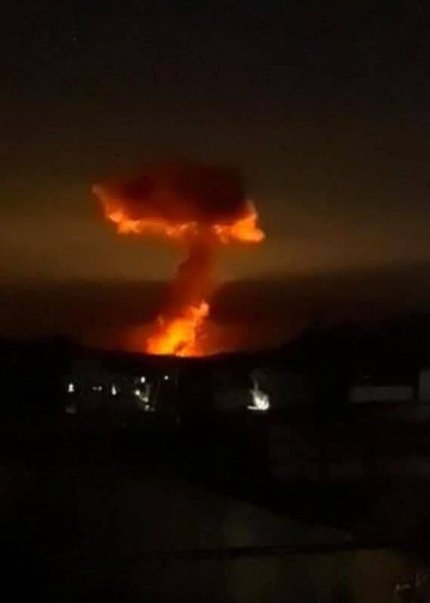On the night of December 14, Israel launched new strikes on tunnels, weapons depots, and airports near the Syrian capital, Damascus.
Points of attention
- Israel conducted 17 airstrikes on Iranian military targets in Syria, including tunnels, weapons depots, and airports near Damascus.
- The Israeli airstrikes are aimed at destroying Iranian military facilities storing and launching ballistic missiles in Syria.
- Israel has intensified its military operations in Syria, deploying ground troops and conducting over 500 airstrikes since the collapse of the Assad regime.
- Recent strikes targeted strategic tunnel complexes of Iranian production and missile depots and launchers in the Qalamoun area.
- The Israeli military has been actively targeting Syria's strategic weapons stockpiles and facilities in Damascus, Homs, Tartus, Latakia, and Palmyra to prevent them from falling into enemy hands.
Israel attacked Iranian military bases and warehouses in Syria
It is noted that the wave of 17 strikes was aimed at strategic tunnel complexes of Iranian production, which are believed to be designed to store and launch ballistic missiles, reports the Jordanian channel "al-Ghad TV".
Al Jazeera, citing the UK-based Syrian Observatory for Human Rights, also reported Israeli strikes. It said that "Israeli strikes destroyed a scientific institute" and other related military facilities in Barza, north of Damascus, and a "military airport" on the outskirts of the capital.

The strikes also targeted “Scud ballistic missile depots and launchers in the Qalamoun area, as well as “missiles, depots and tunnels.”
Israel bombs Iranian military targets in Syria
Israeli airstrikes hit the "Mount Qasun missile base" in Damascus, as well as the airport in the southern province of Sweida, and the "defense and research laboratories in Masyaf" in Hama province.
Earlier this week, military sources reported that the Israeli Air Force had carried out several airstrikes on Syrian military facilities since the fall of the Assad regime, with the aim of destroying weapons and other assets so that they do not fall into enemy hands.
The collapse of the Assad regime, accompanied by the abandonment of military facilities and equipment, prompted a reaction from Israel, which for the first time in 50 years carried out almost half a thousand airstrikes on military targets in Syria and deployed ground troops in the country.
The Israeli military said on December 10 that it had carried out about 480 strikes across the country over the past two days, hitting most of Syria's strategic weapons stockpiles.
It is specified that about 350 strikes were carried out by manned aircraft on airfields, anti-aircraft batteries, missile launchers, drones, fighters, tanks and weapons production facilities. These facilities and weapons were located in the areas of Damascus, Homs, Tartus, Latakia and Palmyra. The remaining strikes were carried out in support of ground operations on weapons depots, military facilities, launchers and firing positions.









